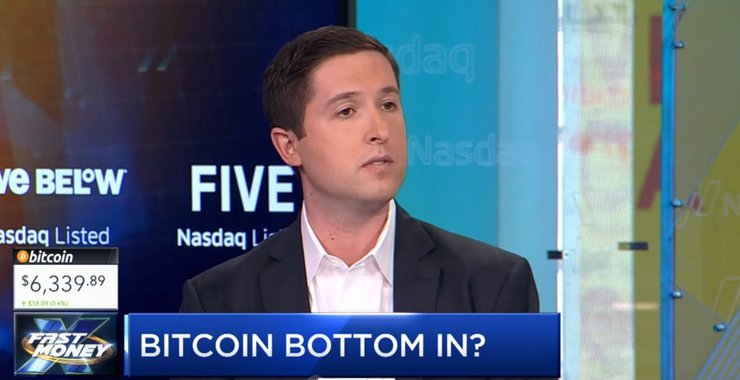
Institutional interest in cryptoassets is strong and growing, says the new quarterly report from Grayscale Investment, a cryptoasset investment firm.
Grayscale reported that of approximately $330 million of investment this year, about $81 million of it has come during Q3 (start of July through end of September). Perhaps more importantly, the ratio of institutional investment coming to Grayscale products rose during Q3 to 70%, up from 59% for year’s average.
Accredited Individuals and Family Offices investment ratios both fell during Q3 compared to the yearly average, seven and six percent respectively. The New York-based investment firm, which claims to be “the world’s largest digital currency asset manager,” reports that bitcoin has been by far its most popular investment product during 2018, with 73% of investments in Q3 being in bitcoin versus in other cryptoasset products that Grayscale offers.
Michael Sonnenshein, Managing Director at Grayscale, told CNBC’s Fast Money in an interview that these investors were playing the long game, “investing into the space for the medium- to long-term.”
‘Two mega-trends are converging’
CNBC analyst Brian Kelly echoed Sonnenshein’s thoughts on institutional interest, saying that institutional investors “understand that two mega-trends are converging - [namely] Web 3.0 and Wall Street 2.0” Kelly is alluding to a theory that cryptocurrencies and virtual assets will be wedged in between two (similar) revolutions made possible by blockchain and distributed consensus technology. On the one hand, many will claim that distributed consensus projects have the potential to crack open the siloed and centralized caches of data owned by corporations, given up by users in exchange for “free” services.
The promise of a so-called Web 3.0 is to reproduce all of the speed, ease of use, slick interfaces, and shocking power and ubiquity of the current Internet, while simultaneously encoding, encrypting, and decentralizing as much of the data feeding it as possible.
Web 3.0 would distribute both workload and profit around to who-knows-how-many users, instead of doing it all in centralized - although admittedly much more efficient - servers owned by corporations. By the same token, many see a possibility for vast improvements in the operations of the traditional financial world, speeding up trading by making direct settlements between parties, simplifying asset management, securitization, fundraising, know-your-customer registration - in sum, anything that has to do with “verifying and transferring financial information and assets” in the financial industry.
Artificial intelligence, assisting data-verification for use in high frequency trading, is another potential revolution waiting to happen in finance. CryptoGlobe reported only days ago on Jamie Dimon’s renewed bluster surrounding bitcoin in particular, even as his own industry is laying the infrastructure for blockchain integration. Taking Grayscale’s report into account, however, it would seem that many investors believe the glue of these revolutions will be cryptoassets - starting with bitcoin.